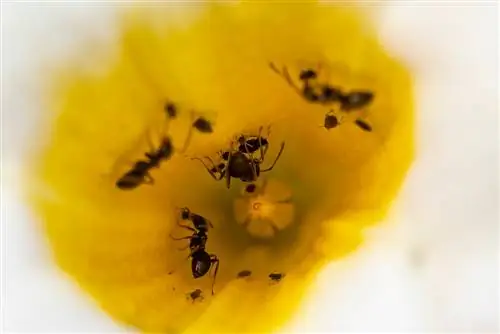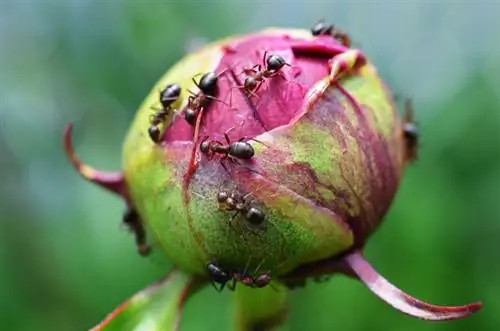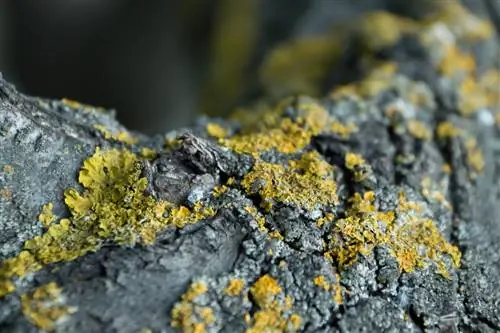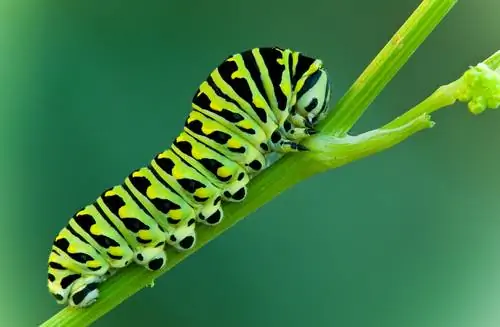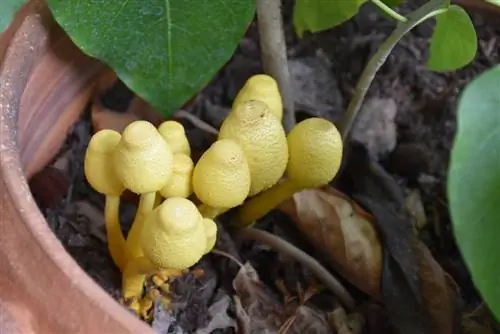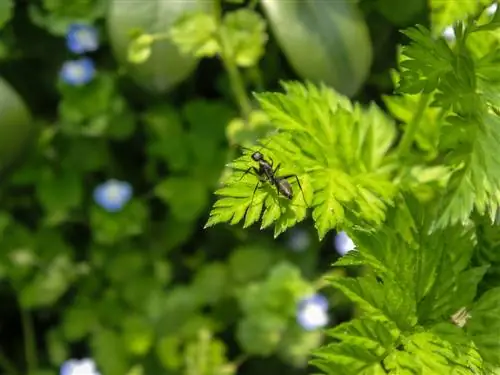- Author admin [email protected].
- Public 2023-12-16 16:46.
- Last modified 2025-01-23 11:22.
If ants only move sporadically under the Dipladenia, this is usually not a problem. The animals are even useful. However, if the ants climb up the Dipladenia, this can be a warning sign. This is how you get rid of the infestation.
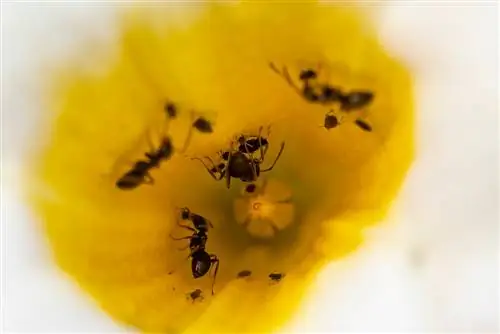
Are ants harmful on a Dipladenia?
Ants are not necessarily harmful to the Dipladenia as long as they stay on the ground. However, if they climb the plant and leave a sticky residue, it may indicate an aphid infestation. Clean the leaves with water and a soft soap solution to treat the infestation.
Are ants harmful to Dipladenia?
Ants can contribute to thespread of aphids. As long as the ants are only active on the ground under the plant and remove small garden waste and other organic materials, you don't have to worry about your Dipladenia. Here the ants show their positive side. They improve soil permeability and make an important contribution to preserving the ecosystem. Only when there is a lot of activity on the leaves of the Dipladenia is it necessary to take action.
When do ants indicate aphid infestation on the Dipladenia?
You can recognize an aphid infestation by thesticky residue on the leaves of the Dipladenia. The ants maintain and cultivate the pests as they eat the sticky excretions of the aphids. However, such an infestation is not without danger for your Dipladenia. When the plant's leaves become stuck together, the Mandevilla's metabolism slows down. In addition, fungal diseases and infestation by other pests are encouraged.
How do I treat infected Dipladenia?
Clean the leaves with a strongwater jetand then treat them with asoft soap solution You can first place houseplants in the shower. If you rinse the leaves, the ants and some of the pests will already lose their grip on the leaf and fall off. However, you won't necessarily get rid of the sticky residue and eggs. That's why you should definitely use a soft soap solution (€4.00 on Amazon) with a little neem oil to combat Dipladenia infestation.
How do I avoid an infestation of Dipladenia?
The right level ofhumidity plays an important role in prevention. If you expose the Dipladenia to dry heating air during the winter, pests such as aphids, mealy bugs or spider mites can nest on the plant more easily. If there is a certain amount of louse colonization, this will also attract ants in the spring. As a preventive measure, occasionally spray the Dipladenia lightly with a water spray in winter to increase the humidity.
How do I keep ants away from Dipladenia?
You can deter ants withessentialoils, cinnamon or lemon. Simply apply the funds to the Dipladenia. The animals don't like the smell of these products. The following herbal plants are also suitable for fighting ants:
- Thyme
- Lavender
- Marjoram
Tip
Relocating ant nests with a bucket
Has a small ant nest settled under a free-growing Dipladenia? With a flower pot or a suitable bucket and some wood shavings, you can relocate the animals to another location.

